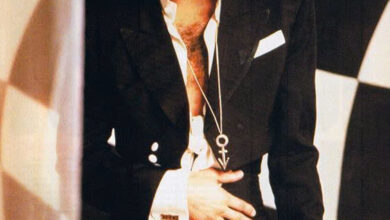A Hidden Protest Anthem: Why Prince’s ‘Dear Mr. Man’ Still Resonates in Today’s Society
OPINION: This article may contain commentary which reflects the author's opinion.
In the landscape of Prince’s vast musical catalogue, there are tracks that transcend entertainment, striking a chord with the social and political climate of their time—and beyond. One such track is “Dear Mr. Man,” from his 2004 album Musicology. Though it may not have received the same level of mainstream attention as some of his iconic hits, “Dear Mr. Man” stands out as a poignant protest anthem that remains profoundly relevant in today’s society.
The Lyrics of Resistance
At its core, “Dear Mr. Man” is a letter of defiance. In the song, Prince calls out systems of power and the leaders responsible for the inequalities and injustices plaguing the world. With lines like “Ain’t no sense in voting, same song with a different name,” Prince expresses a deep disillusionment with political systems, arguing that those in power remain indifferent to the struggles of everyday people.
The song’s lyrics address a variety of pressing issues, including war, corporate greed, and environmental degradation. Prince’s message is as clear as it is timeless: real change comes from people, not the institutions that often fail them.
A Message That Still Echoes
When “Dear Mr. Man” was released in 2004, the world was grappling with the consequences of the Iraq War, economic inequality, and political corruption. Fast forward to today, and the issues Prince sang about are still alarmingly relevant. From climate change to the widening wealth gap and the rise of political discontent, the problems he highlighted are not relics of the past—they’re ongoing struggles.
In a modern context, “Dear Mr. Man” resonates with movements like Black Lives Matter, climate activism, and campaigns for political transparency and accountability. The line “We demand a chance to do things for ourselves,” for instance, captures the essence of grassroots activism seen across the globe today.
Prince’s Visionary Social Commentary
One of the reasons why “Dear Mr. Man” continues to resonate is because Prince was not only a musician but also a keen observer of social dynamics. He used his platform to shine a light on uncomfortable truths. He saw the power in his music as a form of protest, and “Dear Mr. Man” was his direct confrontation with the status quo. The track serves as a reminder that music can be a powerful force for societal change.
Prince was never afraid to speak his mind, often challenging authority in ways that were ahead of his time. He was an artist who used his creative freedom to question systems of oppression, and this track reflects that ethos. In today’s world, where voices of dissent are often silenced or marginalized, Prince’s song is a powerful call to continue questioning authority and fighting for justice.
Timeless Protest in an Era of Change
What makes “Dear Mr. Man” timeless is its focus on systemic issues rather than specific political moments. It transcends the immediate context of its release and applies to any era where inequality and injustice persist. In today’s digital age, where protests and social movements are organized online, the song serves as a reminder that the struggle for equity is ongoing, and art can be a catalyst for change.
Conclusion
Prince’s “Dear Mr. Man” might not have been a chart-topping hit, but its message is arguably more important than many of his more commercially successful tracks. As we continue to navigate a world filled with political unrest, environmental crises, and social inequality, the song’s call for accountability and change is more relevant than ever. In a time where protest songs are needed more than ever, “Dear Mr. Man” stands as a reminder that music can inspire us to challenge the world we live in—and work towards building a better one.



